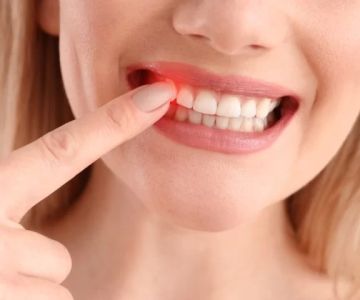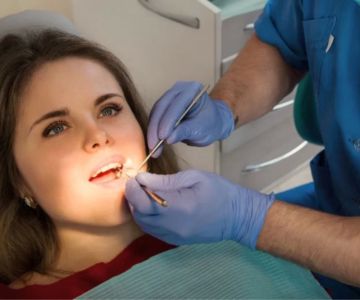How to Treat Gum Inflammation: A Comprehensive Guide
Gum inflammation, also known as gingivitis, is a common yet often overlooked issue that can affect anyone. Whether you are experiencing mild discomfort or more severe symptoms, it’s crucial to understand how to treat gum inflammation effectively to avoid more serious dental issues. In this article, we will dive deep into the causes, symptoms, and treatment options for gum inflammation, along with practical tips on how to manage it at home. This guide will also highlight why early intervention is essential for maintaining oral health.
1. Understanding the Causes of Gum Inflammation
Gum inflammation typically arises from poor oral hygiene that encourages plaque buildup on teeth, leading to infections in the surrounding gum tissue. Plaque is a sticky film of bacteria that can lead to gingivitis if not removed with proper brushing and flossing. However, other factors can contribute to gum inflammation, including smoking, certain medications, hormonal changes (such as pregnancy or menopause), poor diet, and even genetic predisposition.
2. Recognizing the Symptoms of Gum Inflammation
The most common symptoms of gum inflammation include redness, swelling, tenderness, and bleeding, particularly when brushing or flossing. You might also notice a bad taste or persistent bad breath. If left untreated, gingivitis can lead to periodontitis, a more severe form of gum disease that can cause tooth loss. If you experience any of these symptoms, it is essential to act quickly and take steps to treat gum inflammation before it progresses.
3. Home Remedies for Treating Gum Inflammation
In addition to professional dental care, there are several home remedies that can help reduce gum inflammation. Here are some of the most effective methods:
- Saltwater Rinse: A warm saltwater rinse can help reduce swelling and fight bacteria. Simply dissolve half a teaspoon of salt in a glass of warm water and rinse your mouth for 30 seconds.
- Hydrogen Peroxide: A diluted hydrogen peroxide solution (3% hydrogen peroxide mixed with water) can help reduce gum inflammation by killing bacteria and promoting healing.
- Aloe Vera: Aloe vera gel, known for its soothing properties, can be applied directly to inflamed gums to help reduce swelling and provide relief from pain.
- Tea Tree Oil: Known for its antimicrobial properties, tea tree oil can help fight the bacteria that cause gum infections. Be sure to dilute it with a carrier oil before applying it to the gums.
4. The Role of Diet in Gum Health
What you eat plays a crucial role in maintaining healthy gums. A diet rich in vitamins and minerals, particularly vitamin C and calcium, can help strengthen your gums and reduce the risk of inflammation. Foods like citrus fruits, leafy greens, and dairy products are excellent choices for improving gum health. Additionally, drinking plenty of water helps rinse away food particles and bacteria, reducing the risk of plaque buildup.
5. Professional Treatments for Severe Gum Inflammation
If your gum inflammation is severe or doesn’t improve with home remedies, it may be necessary to seek professional dental treatment. Some treatments that a dentist might recommend include:
- Deep Cleaning: A dentist or dental hygienist can perform a deep cleaning (scaling and root planing) to remove plaque and tartar buildup from below the gumline.
- Antibiotics: In cases of infection, your dentist may prescribe antibiotics, either in pill form or as a topical gel applied directly to the gums.
- Surgical Treatments: In extreme cases where gum disease has advanced to periodontitis, surgery may be necessary to repair damaged tissue or reduce pockets of infection.
6. Preventing Future Gum Inflammation
Once your gums have healed, it’s important to take steps to prevent future inflammation. Here are some essential habits to incorporate into your daily routine:
- Brush Your Teeth Regularly: Brush your teeth at least twice a day using a fluoride toothpaste. Make sure to gently brush along the gumline to remove plaque and prevent gum disease.
- Floss Daily: Flossing removes plaque and food particles from between your teeth that brushing alone cannot reach.
- Visit Your Dentist Regularly: Regular dental checkups and cleanings can help detect gum disease early and prevent further complications.
Gum inflammation is a common issue, but with the right treatment and preventive measures, it can be managed effectively. Whether you choose to use home remedies or seek professional care, the key to maintaining healthy gums is consistent oral hygiene and timely intervention. Remember, your gum health is an integral part of your overall oral hygiene routine, and addressing any concerns early can save you from more severe dental problems down the line.







 Westgate Dental Arts
Westgate Dental Arts Coventry Family Dental
Coventry Family Dental Familia Dental
Familia Dental Dr. Daniel S. Fife, DDS
Dr. Daniel S. Fife, DDS Dentistry At Suburban Square: Michael I. Wollock, DMD
Dentistry At Suburban Square: Michael I. Wollock, DMD Comfort Care Dental
Comfort Care Dental The Importance of Oral Health Education During Pregnancy for a Healthy Pregnancy
The Importance of Oral Health Education During Pregnancy for a Healthy Pregnancy Why Skipping Dental Checkups Can Lead to Bigger Oral Health Problems
Why Skipping Dental Checkups Can Lead to Bigger Oral Health Problems Advantages of Porcelain Dental Restorations
Advantages of Porcelain Dental Restorations Best Tips for Brushing Your Teeth Properly for Healthy Gums: Essential Techniques for Oral Health
Best Tips for Brushing Your Teeth Properly for Healthy Gums: Essential Techniques for Oral Health How Can Diabetes Cause Tooth and Gum Problems? Preventing and Managing Oral Health Issues
How Can Diabetes Cause Tooth and Gum Problems? Preventing and Managing Oral Health Issues Healthy Habits for Promoting Good Oral Health and Hygiene: Tips for a Healthy Smile
Healthy Habits for Promoting Good Oral Health and Hygiene: Tips for a Healthy Smile